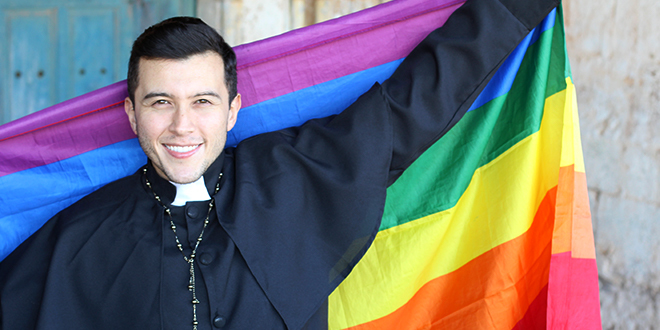Why was the Amish girl excommunicated?
Too Mennonite.
Modern religion has a strained relationship with sex. Aside from a handful of relatively small sects that hold sex to either be a pathway to the divine, or to be divine itself, most major religions try to restrict and regulate our sexuality, in one way or another. Different religions have different codes of sexual ethics, but in general, and especially amongst Christianity, Judaism and Islam, sex comes with rules. And if your penile code breaks the penal code, it’s punishment or penitence.

That’s intriguing. The Big 3 religions all hold Adam and Eve to be the progenitors of all mankind, and it’s a highly sexualised story. Many scholars believe the act that caused Adam and Eve to fall from Paradise to be of a sexual nature. To eat from the tree of knowledge is a very ancient euphemism for sex – in Hebrew, to ‘know’ someone very often means ‘to have sex’ with someone. “And Adam knew Eve his wife; and she conceived.” Moreover, we tend to imagine the fruit of the tree was an apple. Apples didn’t exist in the Middle East at that time: it was most likely a fig, very much native across the Levant, and hence the subsequent figleaves. But the fig was another euphemism for sex, or more specifically, the vulva.
That’s further demonstrated in a much earlier Sumerian tale, the Epic Of Gilgamesh, which would evolve and eventually inform or inspire the Adam and Eve story as we know it today. In it, a pure and innocent man made from clay, Enkidu, lives in an Eden-like environment, until a sexual encounter with a kind of priestess, Shamhat, causes him to lose his innocence and his ability to be at peace in paradise, and he is forced to leave. (The Epic of Gilgamesh is also notable for the homosexual relationship between its protagonists: Enkidu and the titular King Gilgamesh become lovers, and their love is what drives the narrative. It’s fascinating stuff.)
In short, sex had a bad rep from the start, and if you’re raised to believe that the act that caused humanity to forgo its relationship with God was sexual, then you can begin to see where the seeds of sexual repression were sown. It also goes some way to explaining the value of chastity and virginity in religious orders.
Sex before marriage, adultery, and sex for pleasure is considered fornication by most sects of these religions, and it’s therefore sinful. In the most fundamental groups, any sex other than that for reproduction is going to get you Hellbound. Onan, ordered by God to impregnate his brother’s widow against his will, pulls out and ejaculates on the ground at the last second, and is killed by God for his disobedience. Every sperm is sacred, every sperm is great, if a sperm is wasted, God gets quite irate.
And just so I’m not accused of misrepresentation, Buddhism teaches its students to eschew sensual pleasure, and the Third Precept essentially limits sex to marriage. Buddhist nuns and monks are celibate, as was Buddha himself. Hinduism, similarly, restricts pleasure to the Grihastya, or ‘householder,’ stage – in practice: sex within marriage only.
Much of this might offend our modern, progressive and permissive sensibilities. As organised religion liberalises in the West, so do our attitudes to sex, and we begin to bridle at the thought of our sex lives being governed. But are we right, or is religion right?
Religion is the only framework which has respect for the power of sex to turn us away from our responsibilities. Agnostics, atheists and religious moderates simply don’t treat sex with the same reverence, the same seriousness, and the same strictness as fundamentalist religion does.
Those of us who don’t believe sex and masturbation are sinful can sink hours and hours into having sex, or watching porn, or fantasising, or reading erotic fiction , to the point that sexual stimulation for the non-religious is virtually ubiquitous. Perhaps we don’t see the danger in that. Religion does.
Perhaps religion’s restrictions on sexual behaviour exist not to prevent us from falling out of favour with God, but to guard us from ourselves, and to keep us focussed on our daily lives, to protect us from losing ourselves in our own endorphins and to keep us productive.
I’m personally of the opinion that we should be left to govern our own behaviour, and be trusted to be productive when we need to be productive and be in pleasure when we want to be in pleasure.
As such, people like me often scoff at religion for being conservative and prudish. But I wonder if there’s something conservative religion knows that we don’t. Perhaps religion wouldn’t judge sex so harshly, and it wouldn’t try to keep us from it as much as possible, if it didn’t also know just how amazing and addictive it can be.
Holy fuck.
Check this out: The History of Goddess Worship
The post OH MY GOD: Is Religion Right About Sex? appeared first on Volonté .
Intimate Tickles found this article quite interested, and we thought you might to. We give all the credit for this article to Stuart Nugent. Click Here To Read This Article From It's Original Source